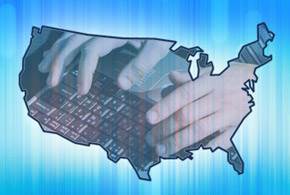Google has added new features to Search to help voters to find out where to vote and who will be on the ballot when they get to the polling place.
With a few weeks left until the general elections, Google has added new features in Search that make it easier for voters to find out where to vote and who will be on the ballot when they get to the polls.
By searching for “who’s on my ballot” and entering their addresses, U.S. voters will have access to detailed information on each of the candidates at the federal, state and local levels and their party affiliation by clicking on the candidate’s name.
By searching for “where to vote” and entering an address, voters can get information on their voting location both for early voting and on Election Day.
In addition to making the information available to users via Search, Google is also making the data available to several technology companies, including Uber, Expedia, Twitter and Hotels.com.
Non-profits such as the Voting Information Project and Pew Charitable Trusts can also use Google’s voting data and the company’s Civic Information Application Programming Interface to build their own applications for making election-related data available to the public, the company said in a blog post this week.
“From President and Vice President, to Congressperson and County Commissioner, a simple search for “who’s on my ballot” will help you find info on the candidates, as well as detailed information on your state’s referenda,” the company said.
Google previously updated its search capabilities to provide information on how to register and how to vote. Individuals can use Google Search to find out if they are registered to vote or how to do so if they are not. The information is available for searches conducted in English and Spanish.
In addition Google this week introduced a new “Fact check” tag in articles that appear in Google News to help readers quickly check facts in large news stories.
Google has said nothing to indicate the new feature has anything to do with the elections. But given the claims and rhetoric from the candidates in the upcoming election, the new tagging feature will likely make it easier for users to do fact checks on their own.
With the feature, Google will start tagging articles that it determines might contain fact checks. The company has also added a new option that publishers can use to indicate when they have a fact-checked article so it can be tagged appropriately, Richard Gingras, head of Google News, said in a blog post this week. The tagged articles will appear in the expanded story box on Google News.
“Over the last several years, fact checking has come into its own,” Gingras said. Led by organizations like the International Fact Checking Network, rigorous fact checks are now conducted by more than 100 active sites,” he said quoting a Duke University report.







